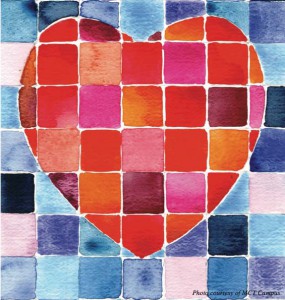Jacob Jardel
Staff Writer
Alex Rosa-Figueroa, a close friend and former colleague of mine, wrote an award-winning editorial defining the concept of love.
Alex did a fantastic job teaching me—heck, all of us—a good thing or four about that concept which eludes the understanding of musical acts such as Foreigner and Haddaway. The English language could use a few more words to describe it.
However, Alex’s editorial has added onto what I already knew and learned from my personal studies into my favorite of topics to research, albeit in a way I’d much rather read. He helped define the words in our affectionate vocabulary.
This editorial also addresses love. But I’m not going to do what he did. He defined love. I’m going to contextualize it—using examples from modern “Doctor Who.”
Yes, “Doctor Who” is a 50 year-old British sci-fi series about a 900 year-old time traveler in his endless quest to save the world and vanquish enemies alongside his boredom. It’s also a show filled with deeper meanings and scenarios contained in a wibbly-wobbly ball of thinky-winky stuff.
Started well, that sentence did.
But the one thing I have noticed about the show is how much it draws on the concept of love. To paraphrase a former professor of mine, all great narratives address love or a lack of love. Such is true of “Doctor Who.”
There are a variety of examples I could pull to address the topic of love. Rose adored Nine and loved Ten in various aspects. Donna loved Ten in the way one loves a sibling. The Doctor loved every person he ever helped.
These examples are the tip of the iceberg, but digging deeper could spoil the series and render this piece far too long for news writing purposes.
Yet, there is one character whose love has always been as nebulous as it is apparent: Captain Jack Harkness. With a sexuality more fluid than water expressed with the candidness of a teenager writing a diary, Jack has been a fan favorite for many reasons, the least of which is his amorousness.
That amorousness is indeed what draws me to Jack’s character, but it goes deeper than just open-minded flirtation toward anything sentient. This depth of character extends into a scene in which he gives a goodbye kiss to the Doctor’s companion Rose and the Doctor himself.
In a vacuum, this scene shows Jack’s equal-opportunity affection. But, upon emptying out the bag of Jack’s scenes both before and after this one, one thing becomes apparent: Jack has a style of love that combines the Doctor’s and the companions’.
More specifically, Jack Harkness loves deeply, fully and equally. Jack Harkness loves in a way that is open to anyone but is unique to anyone.
Jack Harkness loves in a way I aspire to love.
We all have the capability to love in any way we choose. We all have the words to speak a language that we hope to translate into something coherent. We choose the love we think we deserve and reciprocate accordingly.
But one thing we forget to sometimes do is look not just at the love we have or desire but also at the way we express it. Sometimes, the way we express our love can be as important as the love we have.
So, I urge everyone with whom I interact not only to show the love they want to embody but also to be the embodiment of the love they show. It does not matter which of Alex’s definitions of love you exhibit; just make sure you show it and be it.
It’s one of the cheesiest, most cliché, most textbook pieces of advice I could give. But it’s also some of the best advice I could give. Be the love you want to show. Show the love you want to be.
Love like Jack Harkness.

